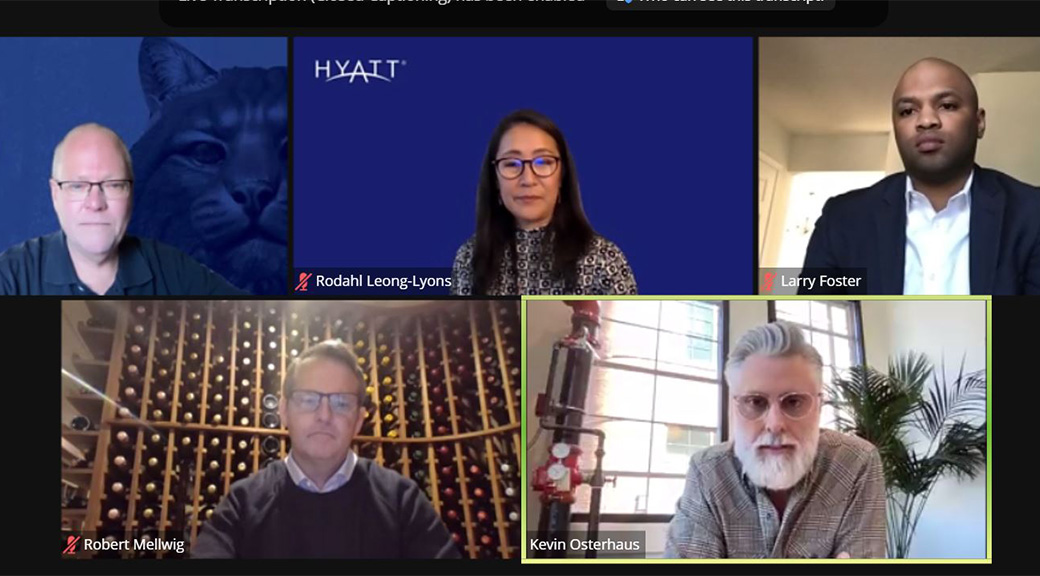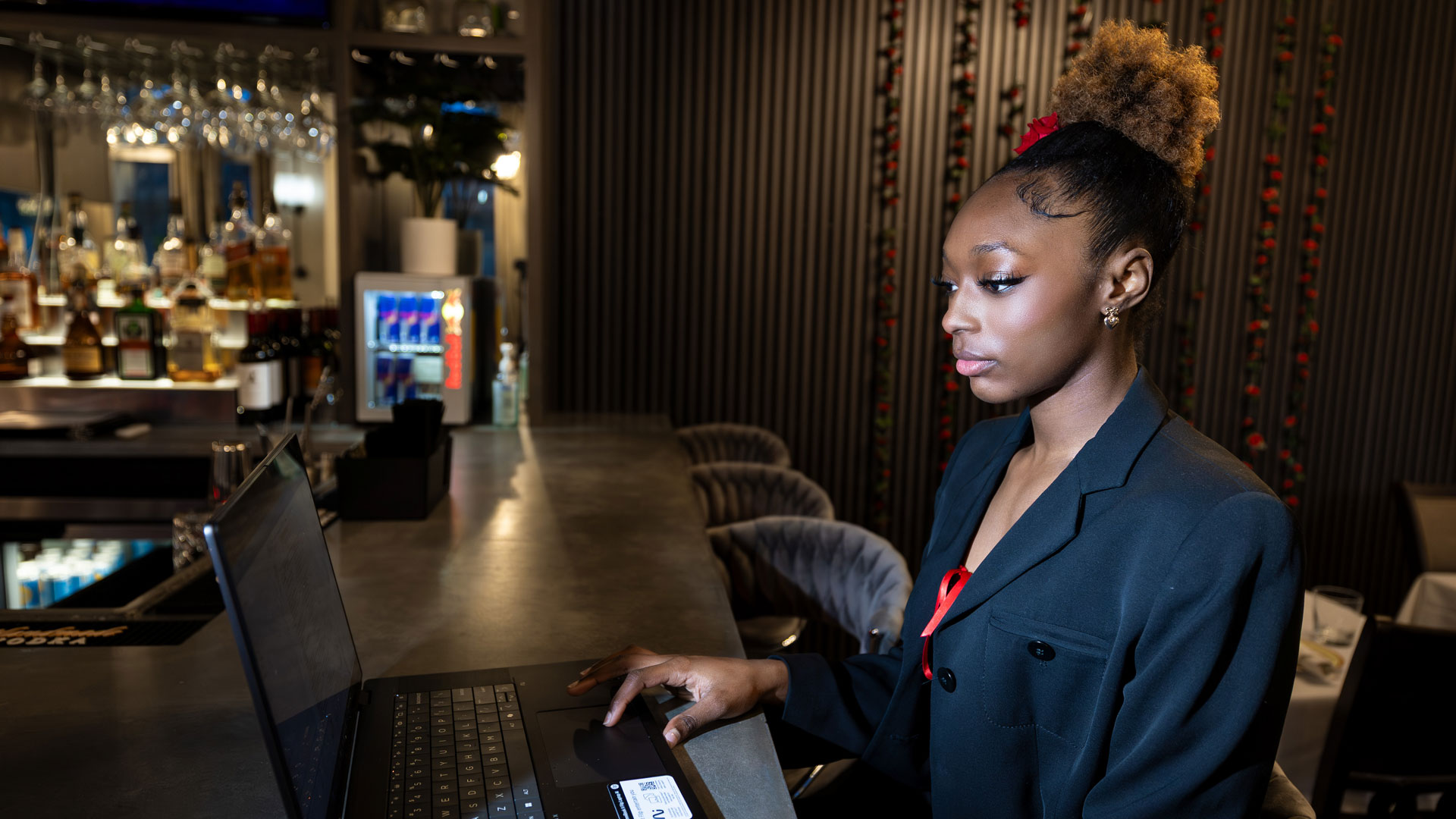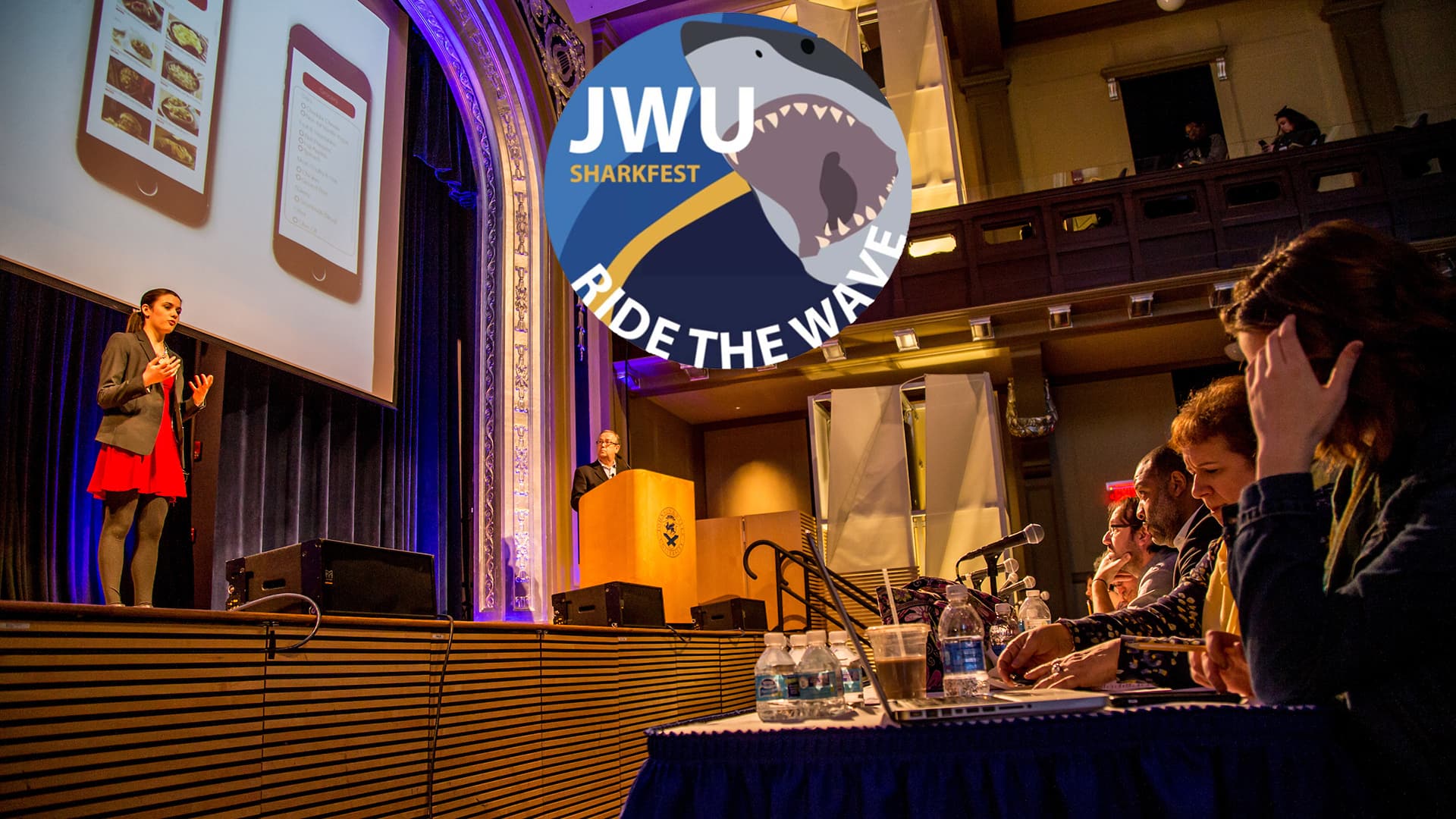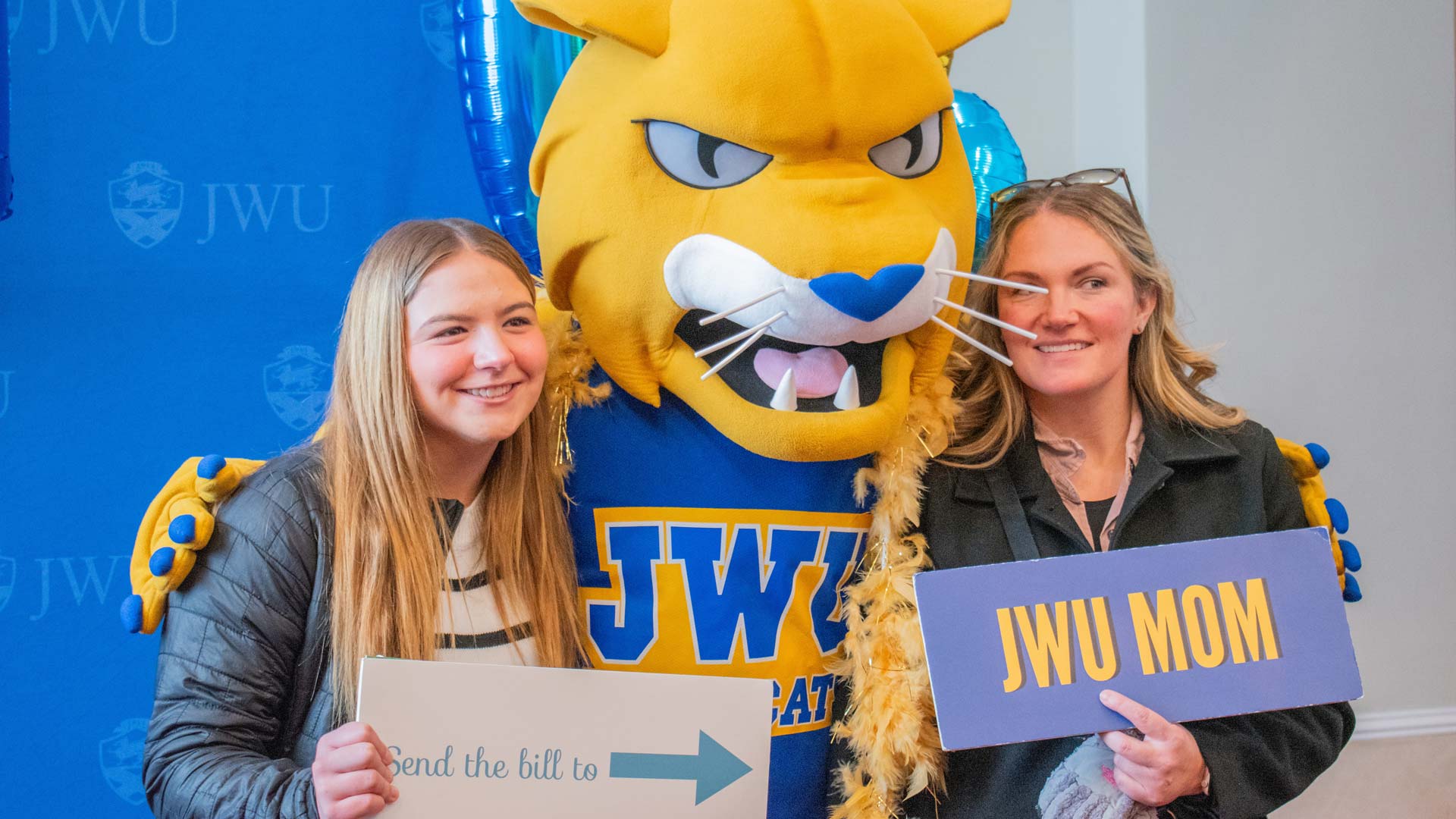Wisdom from the Top: Hospitality Leaders Share Advice for JWU Students
Choosing a career in the hospitality industry is all about relationships, from forging connections with colleagues and industry professionals to creating a meaningful experience for guests. As students get ready to start their careers, top industry professionals shared their tips for getting ahead.
This year’s JWU Hospitality Summit hosted by the College of Hospitality Management in Providence, Rhode Island, included four hospitality heavy hitters, weighing in on how the pandemic caused seismic shifts in the industry, and how to use the new culture of resilience moving forward. The panelists included:
- Larry Foster '16, manager, franchise sales & development for the Midwest and Southeast regions, Wyndham Hotels & Resorts, Inc.
- Rodahl Leong-Lyons, associate vice president, global sales and events for the Americas, Global Hotel Operational Services
- Robert Mellwig '97, senior vice president, talent & culture (HR) at Auberge Resorts Collection
- Kevin Osterhaus, president, Graduate Hotels
At the end of the panel, each panelist was asked to share their best advice for students. Here’s what they had to say.

Know Your “Why”
To Foster, the most important thing for students getting started is to always remember why they chose the industry in the first place: a passion for the hospitality industry.
"Relationships are everything,” he said. “Networking builds relationships, which can be invaluable when it comes to getting a job or moving up in a career. Young professionals should seek out a mentor to expand their knowledge of the industry and further build their network.”
Own Your Unique Story
Leong-Lyons’s view of hospitality centers on human stories and experiences. She encouraged students to tell their stories and let their unique experiences shine through. “This is what makes you different,” she said. “This is what makes you stand out.”
Mellwig also encouraged students to focus on what makes them unique and therefore stand out from other employees or job candidates.“Find your superpower. All of us are rooted in things that make us special or unique,” he said. After identifying their strengths, students can then build their careers around them.
Read More >>> Best Personality Types for the Hospitality Industry
Value Your Time
Leong-Lyons’s other advice had to do with time management. “Time is one of our most precious resources,” she added, “So don’t spend it on just anyone. Be selfish with your time … and bet on yourself."
Jump at Opportunity
Hospitality is all about the interesting,” Osterhaus advised, which served the foundation for his career. “I wanted to live in interesting places and work with interesting people … and that has been the case,” he said.
In that vein, he encouraged students to be adaptable and take opportunities as they come, with a willingness to be flexible.
Your POV Matters
“We want the industry to be appealing to a new generation of people who want to serve others,” he said. “Push for what excites you.”



